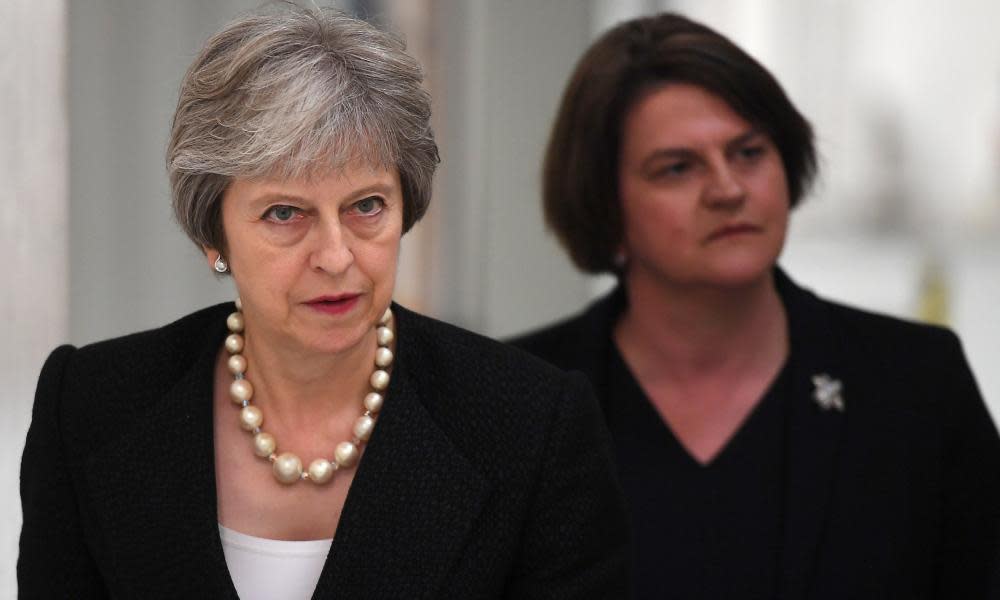Can Theresa May survive calling the DUP's bluff on Brexit?

Theresa May may be ruing the day she entered into a confidence and supply agreement with a Northern Irish party in order to stay in power.
Not for the first time, the Democratic Unionist party is threatening to torpedo her plans to secure a Brexit deal with the EU but this time it coincides with open revolt from inside her cabinet, a combination that could prove lethal to the prime minister.
With the former Brexit secretary David Davis calling for rebellion and the possibility of more cabinet resignations, May needs the DUP’s 10 votes to prop up her government more than ever.
As talk of a breakthrough in Brussels intensifies, the question is: can the prime minister call their bluff?
The party, founded in 1971 by the evangelical preacher Ian Paisley, is unlikely ever to wield such influence in Westminster again and to vote against a Chequers-type Brexit deal with regulatory checks between Britain and Ireland would bring the curtain down on the DUP’s role as powerbroker.
But its leader, Arlene Foster, has warned she is not bluffing. Those who think the DUP will fold to retain power in London should note it also campaigned against the Good Friday agreement.
Last week in what it described as a “warning shot” across Conservative bows, the DUP abstained from a vote on the agriculture bill and said it could vote against the budget.
On Sunday in an opinion piece in the Belfast Telegraph, Foster raised the stakes further, saying she was not playing a game and hinting she was prepared to die in a ditch, politically speaking, to save the union.
“The DUP’s actions this week are not as some have suggested about ‘flexing muscle’. Anyone engaging in this in a lighthearted way foolishly fails to grasp the gravity of the decisions we will make in the coming weeks,” wrote Foster.
While at home the DUP’s brand of rhetoric is not universally approved among its own constituents, even moderates consider what May is doing as a “catastrophe” for the union and unionists, who fear for their future.
One influential source said unionists feel wounded by what they see as yet another betrayal by “big stick” Britain and if they do not fight to the death on this, they might as well give up. And they back the DUP’s implacable opposition to any divergence between Northern Ireland and Britain.
The party has demanded to see the agreed text of May’s plan for the so-called Irish backstop – the agreement to prevent a hard border on the island of Ireland in the event of a no-deal Brexit – but as of Sunday it had not been shared.
On Monday Foster is travelling to Dublin for a series of meetings, including with the taoiseach, Leo Varadkar.
The EU is evidently still hoping it can pull off a deal by “de-dramatising” the Irish border question with a minimum of checks on goods going from Britain to Ireland in British ports and premises.
But even that is anathema to the DUP. Nigel Dodds, the party’s leader in the House of Commons, told the Guardian that any extra checks, even just on plant and food imports, would amount to a constitutional division, putting Northern Ireland in a different regulatory regime to the UK.
Foster, Dodds and senior DUP MPs such as Sammy Wilson and Jeffrey Donaldson have been saying for weeks that they will vote against a deal that involves any new checks between Britain and Northern Ireland. Do not expect that to change.

 Yahoo News
Yahoo News 
